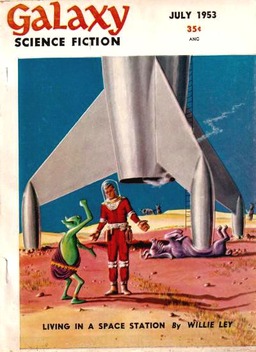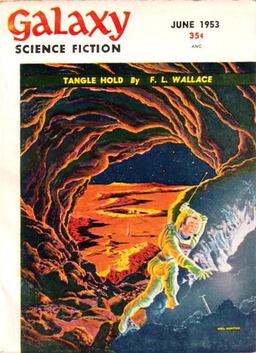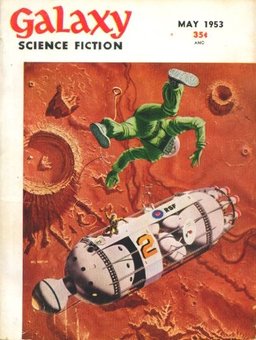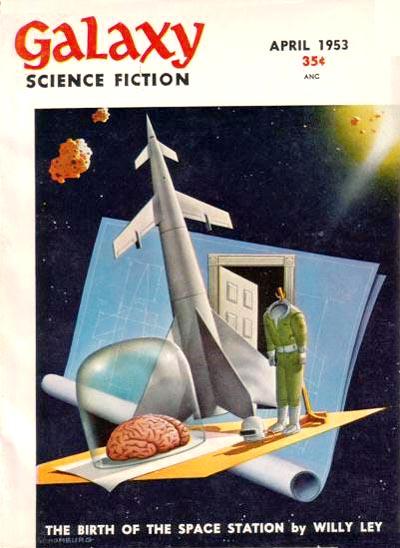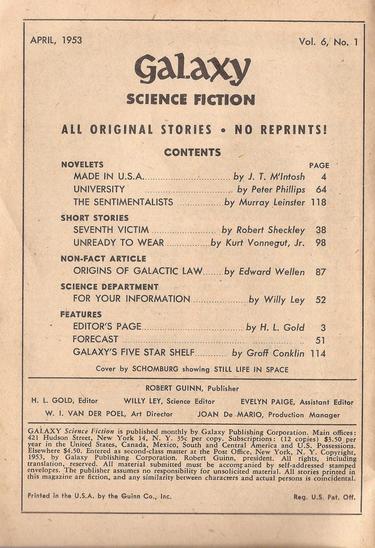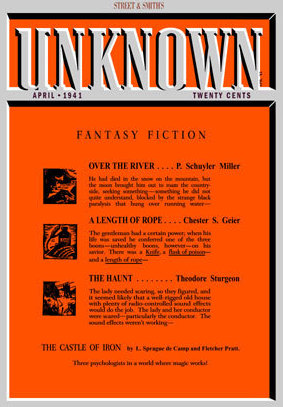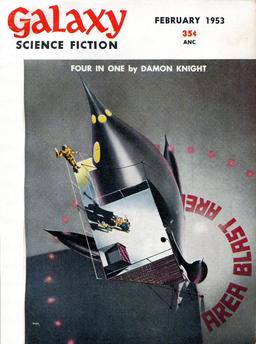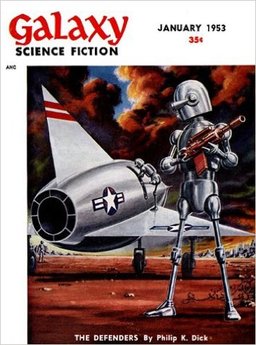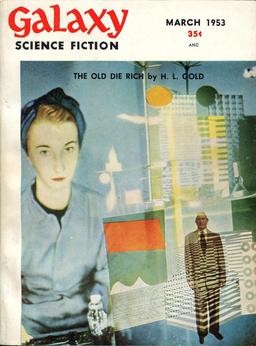 I’ve already covered the $6,500 novel-writing sham announced in this issue in a previous post. So let’s jump straight into the contents.
I’ve already covered the $6,500 novel-writing sham announced in this issue in a previous post. So let’s jump straight into the contents.
“The Old Die Rich” by H. L. Gold — Periodically, senior citizens are dying of starvation, yet they have large sums of money in banks or in cash. Mark Weldon tags along with his friend, Officer Lou Pape, whenever the police find out about the incidents. Mark’s intrigued by the circumstances and feels compelled to understand the pattern, even if it’s a matter of being too fearful to deplete their savings.
Mark’s investigation leads him to May Roberts, a young woman who hires seniors for unspecified purposes. He tries to break into her apartment at night, only to be captured. She decides to use him as her latest employee.
The job is to travel into the past and place bets on known outcomes or invest in the stock market at key moments. Mark slips from one time period to the next, spending a varying amount of time in each destination. But anything he interacts with in the past, such as food, can’t come forward to the present with him; it ages as though it’s still part of the past, becoming dust.
Gold’s story has good pacing, but I couldn’t get past his rules of time travel. If someone moves into the past and can’t eat because anything ingested becomes dust, then how could someone breathe? It didn’t seem reasonable to me.
“Games” by Katherine MacLean — Ronny plays outside, imagining a Native American battle scene. Except that as he’s acting it out, he becomes one of them. And then he becomes an old man, dying of starvation — someone who refuses to give information to those who’ve held him imprisoned. It’s frightfully real for Ronny, and he doesn’t understand how it’s happening.
…
Read More Read More

